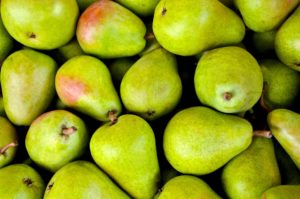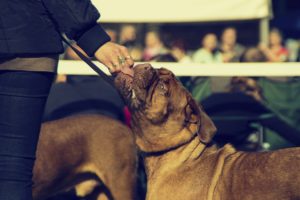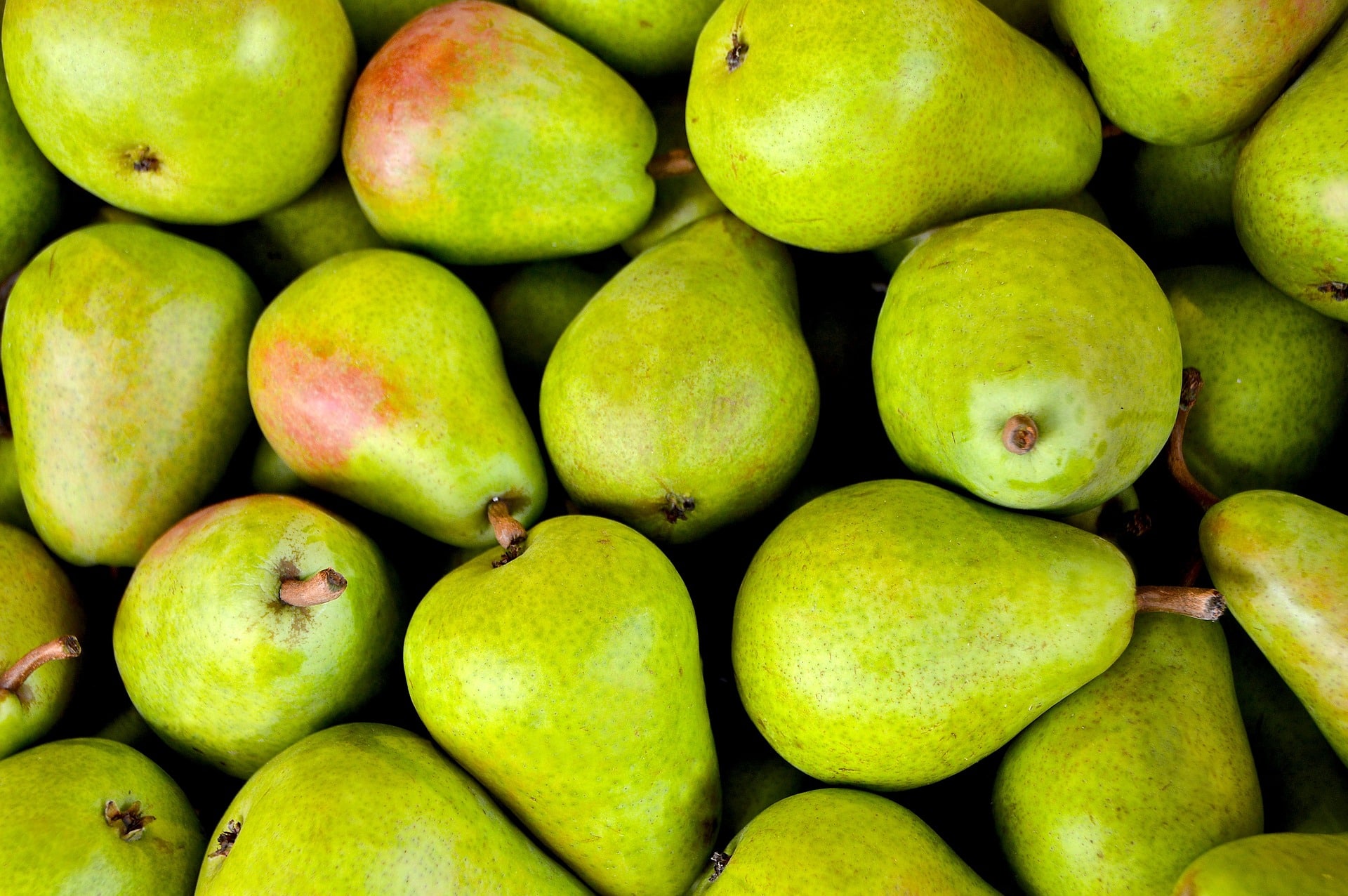Dogs are a beloved animal for many people, and a son or daugther to us, pet owners. As a dog parent, you have to make sure that your furry baby is getting the right nutrition to stay healthy and happy. One question that often comes up is whether or not dogs can eat pears. In this article, we will explore the nutritional value of pears, the potential benefits and risks of feeding them to your dog, and whether or not it is a good idea to incorporate pears into your dog’s diet. We will be giving a fact-based answer to your question: can dogs eat pears?

Can Dogs Eat Pears from a Nutritional Perspective
Pears are packed with vitamins and minerals: they are a good source of fiber, vitamin C, and copper. The high fiber content in pears can help your furry friend to naturally regulate digestion and prevent constipation. Antioxidants, which help to reduce inflammation in the body and support overall health, are also found in pears. So, can dogs eat pears? From a nutritional stand point, pears have several benefits to your furry friend’s health.
Benefits of Feeding Pears to Your Dog
Pears can offer your furry friend more nutrients for fewer calories. They do not contain sodium, fat, or cholesterol. A medium sized pear (about 166 grams, 5.85 Oz), contains only 100 calories. A sole pear can pack in the necessary % daily value for fiber, Vitamin C, potassium, and a whole host of health benefits. For that reason, pears tend to be a healthy snack for dogs that are overweight or prone to weight gain. Are pears all good news?

Risks of Feeding Pears to Your Dog
What about the risks of dogs eating pears? Pears can be a healthy complement to your dog’s diet. However, there are some risks you have to be aware of as a dog parent. Pears have a high sugar content. Excessive sugar can cause tooth decay, weight gain, as well as other health issues. Some dogs might also be allergic to pears, so before feeding them an entire pear, introduce them to a small amount first. Then monitor them for any signs of an allergic reaction, for example vomiting or more itching than normal. Even if your dog is not allergic to pears, it is important to only feed them pears in moderation to maintain a healthy balance.
How to Feed Pears to Your Dog
So you’ve decided its time to feed your dog a pear. Before you do, wash the pear to make sure no chemicals are on it. Then you can cut the pear up into smaller pieces to feed to your dog, being careful not to let them eat the core or the seeds. Just like apples, these contain small amounts of cyanide which could harm your dog. They could also become a choking hazard. You could even mash the pears and put the pear pieces in a dog toy so your dog is even more entertained while eating the pieces of pear.

Can Dogs Eat Pears with Skin?
Good question. Can dogs eat pears skin?
The skin of a pear is edible. It contains a good amount of fiber. To keep its nutritional value, it’s best for your dog to eat pears unpeeled. However, make sure to monitor your dog’s response to the fruit. You never know what your furry friend is intolerant to. Just like with apples, pear seeds contain cyanide which is a toxic substance for dogs. Large quantities of cyanide can be fatal to your furry baby. Be very mindful to remove the stem and seeds before serving pear to your dog.
Conclusion – Can Dogs eat pears: Yes!
Wrapping up, yes! Your dog can eat pears as a part of their normal balanced diet. They are nutricious and delicious and your dog will surely be interested to try them. Make sure that you don’t go overboard and feed them too many pears, as this can have adverse health effects. If you aren’t sure if pears are right for your specific dog, the best way to find out is to contact your veterinarian.
 See how happy he is?
See how happy he is?

